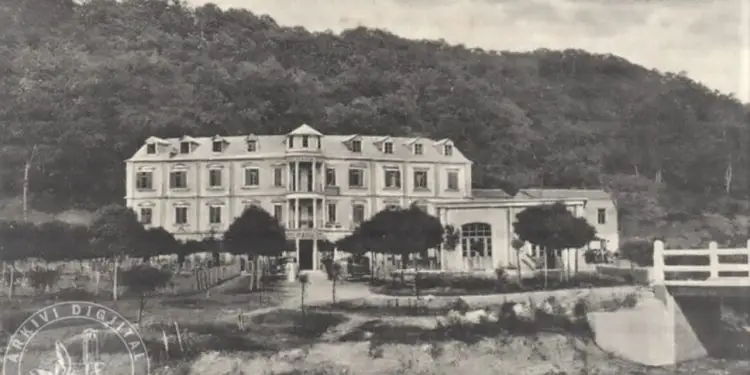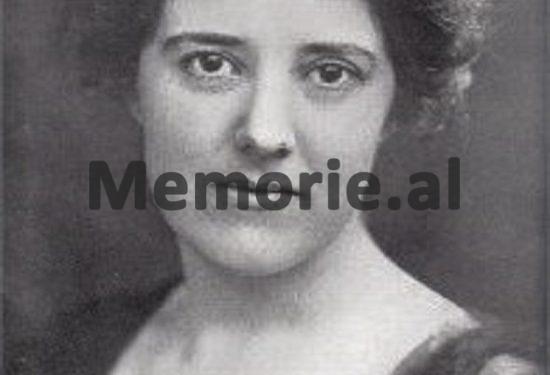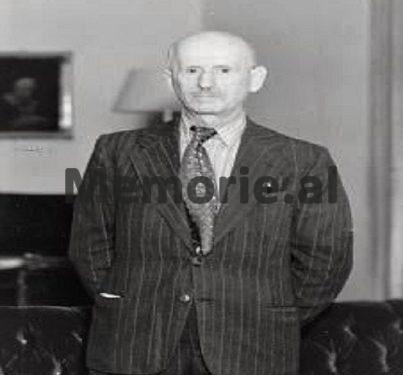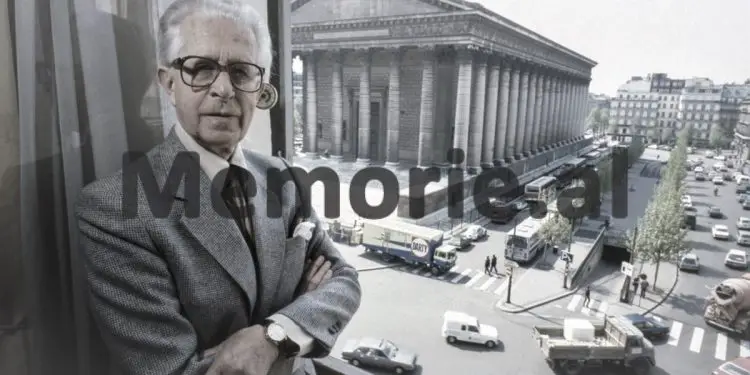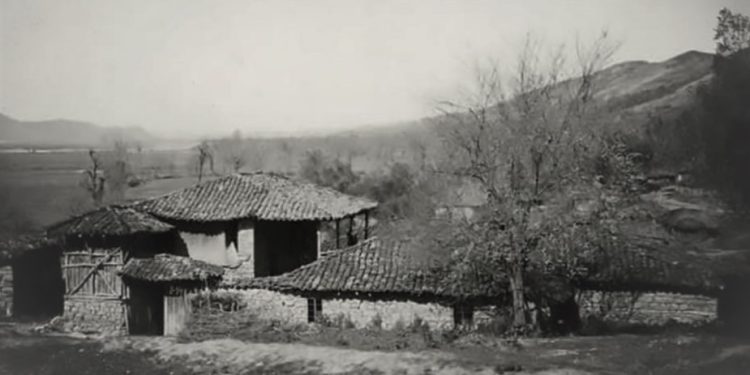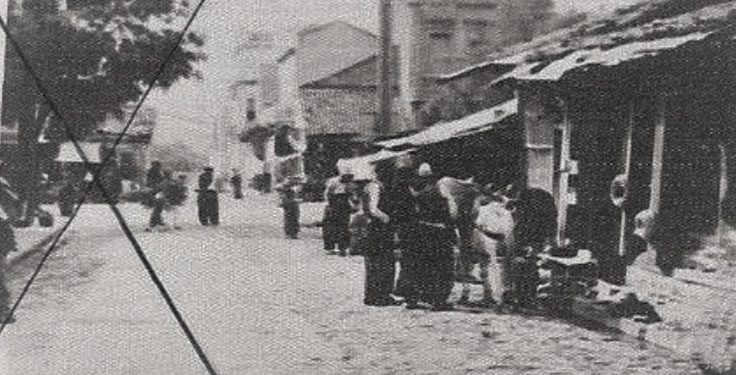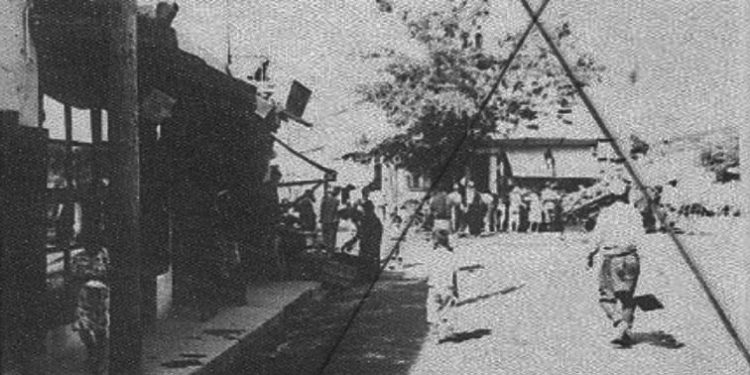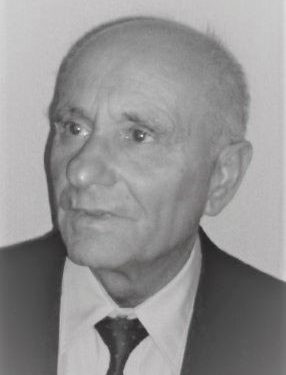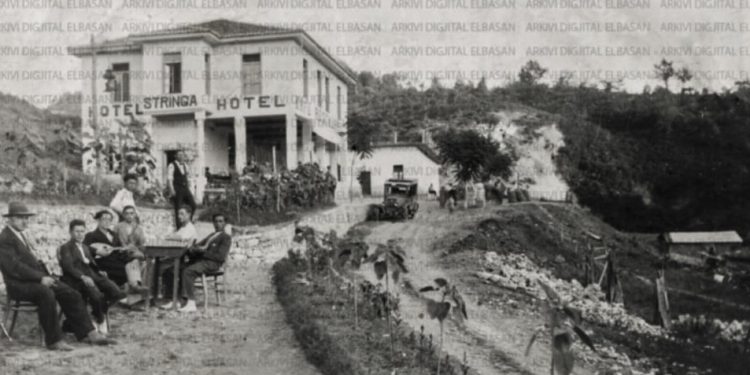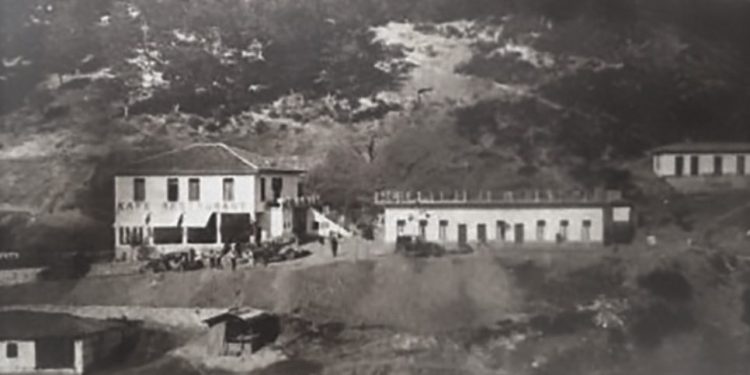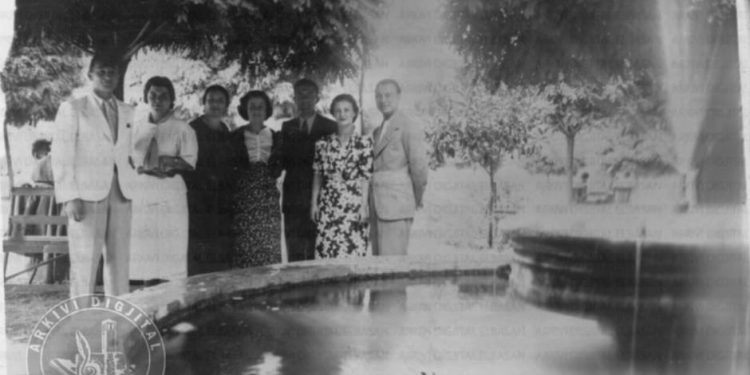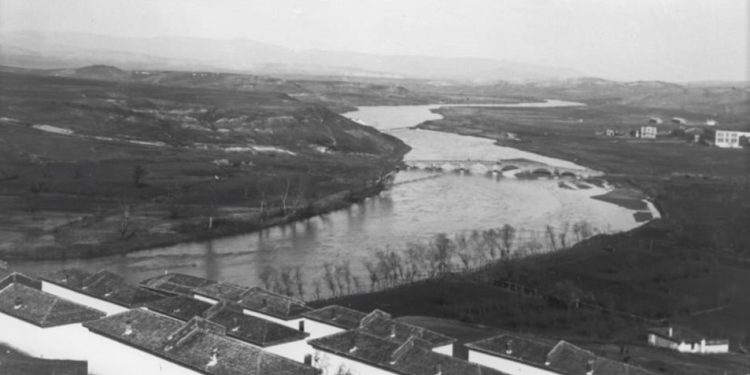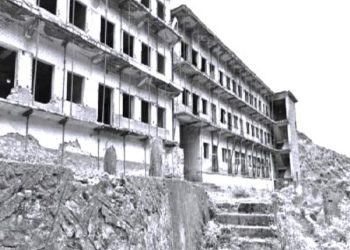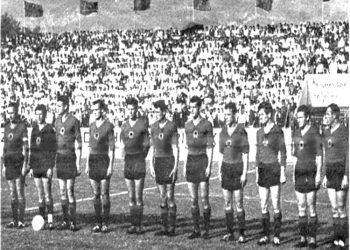By Sven Aurén
Translated by Adil N. Bicaku
Part twenty-one
ORIENTI EUROPE
Land of Albania! Let me bend my eyes
On thee, thou rugged nurse of savage men.
Lord Byron.
In the book “Orient of Europe”, the author of the work is the Swede Sven Aurén. They are impressions of traveling from Albania from the ‘30s. His direct experiences without any retouching.
In a word, the translation of the book will bring to the Albanian reader, the original value of knowing that story that we have not known and we continue to know it, and now distorted by the interests of the moment.
Now a little about what these lines address to you: My name is Adil Bicaku. I have worked and lived for over 50 years in Sweden, without detaching for a moment, the thought and feeling from our Albania.
I am now retired and living with my wife and children, here in Stockholm. Having been for a long time, from the evolution of the Albanian language, which naturally happened during these decades, I am aware of the difficulties, not small, that I will face, to give the Albanian reader, the experiences of the original.
Therefore, I would be very grateful if we could find a practical way of cooperation together, to translate this book with multifaceted values.
Morally, I would feel very relieved, paying off part of the debt that all of us Albanians owe to our Albania, especially in these times that continue to be so turbulent.
With much respect
Adil Biçaku
Continued from the previous issue
This is a shocking moment, happening now. According to the Albanian code of conduct, a bride is always extremely beautiful and among these highlanders of the city, it is the undisputed duty of the groom to give acceptable expressions of his joy. Its quiet death in the room when he starts the bride’s song, as the label predicts. The bride’s tribe sharpens their ears to catch any change of tone; suspicious glances are directed at his face, to make sure the enthusiasm is real.
The groom looks at the face of the future wife and takes a step back. Let us assume, that he does this, out of fright, that that face which he saw, is ugly, stale, deformed face without even any peaceful seduction.
He feels the calmness and looks of relatives. He feels the bloodshed in the room and sees the belts of men, armed with pistols. He knows he has to act as a premiere actor. With a trembling voice of excitement, begins the bride’s song, which according to the translation of the Albanian connoisseur, has the following content:
How beautiful the bride has turned out to be! God save it!
Her forehead is high and noble! God save it!
Her eyebrows like a rainbow! God save it!
Her cheeks are red as apples! God save it!
Her mouth is like a gold box! God save it!
Her lips like cherries! God save it!
Her teeth like an engine! God save it!
Its milky white crack! God save it!
Her waist as thin as a cypress! God save it!
God save the groom! The members of the young man’s tribe think and meanwhile, let out a soothing sigh. The ghost of blood feud is gone. Satisfied bridesmaids give their approval and congratulate this young groom, very enthusiastic about this lucky choice.
Now you might think that this newly married man, after the wedding party, sings another song for his wife, a more sincere, indecent, but informative song, not dedicated to the transformation of the marriage, of the first days, in a wonderful memory. But he does not. Apparently it deepens, in a bitter study of those pictures of women in full shape, in French magazines, which, strangely, are found in the most insignificant places of the globe and are not absent, as in the smoking corners of Shkodra and Tirana, but he says nothing.
Because in the customs of Albanian marriage, it is also contained, that the woman is preserved and respected, in a completely different way from the pure oriental countries. The woman is the friend of the husband, counselor and slave, in a curious but absolute symbiosis, not just slave. She has always played and still plays a very important role in Albanian social life. It can extend its influence even into policy involvement. For this Zog’s mother left a wonderful testimony, that remarkable woman, who helped her son, both for the country and for the Crown?
***
Behind us is the place of prayer of the Muhammadans, Namazgjaja, or the noisy bazaar of Elbasan. Opposite us lies Shkumbini, the great river, with clear water and swampy shores, above the blue sky and the sparkling sun.
Our driver slows down and we hum slowly, over the magnetic stone bridge, which is the continuation of the Via Egnatia, to the south and its arches and stone lids, dating back to the days of the ancient Romans. It is a beautiful and grandiose bridge, which connects both shores with harmonious arches. This is also a bridge, of strategic importance. Here once marched the impenetrable legions of the empire on their way to the southern fronts. It may happen that Mussolini’s legions will march later.
On the other side of the slope, a sparse oak forest climbs, and behind the oak forest, a range of heavy shade extends.
Suddenly the lightning up there on the mountain, an intense, penetrating reflex, which kills your eyes, as if someone tried to irritate our driver, with a giant mirror. I ask the Albanian guide, who is on my right in the back seat, on the left is sitting Mrs. Haslock and tells us, about different types of clothing of Albanians underfoot, for an explanation of this strange phenomenon of light. He replied uninterestedly:
-It’s nothing.
Mrs. Haslock is a little more open-hearted. She said:
-It is the iron door of Italian fortifications, reflecting sunlight.
Rather it means nothing. It is not comme il faut to talk about Italian fortifications in Albania. There are no Italian fortifications in Albania, only Albanian. But the fortifications were erected by Italian engineers and officers and their crew are on standby in Rome barracks. This is how it works.
The journey goes on and the threatening door reflexes fade and disappear altogether. Our goal is another peaceful one: The spa, Europe’s most original spa area, the radioactive sources of sulfur that would realize the government’s dream, to set up an international curative center, that stream of tourists from all over the globe, with wallets filled with pounds and dollars would never run out. It would be unfair to deny that the preconditions are.
The spa has seventy sulfur springs, which boil and evaporate at an average temperature of 65 degrees Celsius. From the analyzes made by foreign specialists, which I have in hand, that the spring water is extremely radioactive. What is missing is in God and not the sources and radioactivity. What is missing is the money, if they now finally come, the opportunity to be found: the government has offered concessions to foreign capitalists and a pair of offers has already entered the lower group. Hopes are good, for more favorable offers.
From now on, the smell of sulfur extends to the nostrils, the smell of sulfur and there in front, lies the evaporating gorge of Llixha. In those volcanic rocks, water climbs like drops of sweat. On that clay soil, yellow and dirty, are the open pits of scattered springs, like a very large pile of giant warts. Or rather: as a volcanic area seen from the sky. Each spring is a miniature crater, with a layer of “lava” around the edges and a little cloud of smoke, a few meters above.
They gurgle and boil in those mystical holes. When I approach a lighted match, in one of these small volcanoes, a blue flame spark erupts, taking the form of an arc from the wind. When I put my hand in the boiling water, at the bottom of the crater, I feel it is a hot wave. It’s like the devil; he had his lab, just a few feet below this harsh, sulfur-yellow soil.
We continue to walk on strange colored layers, which stretch like disgusting crusts, on flat slabs, jump over small water holes, where their muddy bottom boils from inexplicable life and we come to the first medical hotel.
I’m not kidding: The spa has treatment hotel, not just one, but several.
The first, a large white two-story building, has a fairly western appearance. God forbid, is not it a work of art of water, proud of the gate?!
The other two or three are better called by the word hut. There is also a bathroom, which is very miserable. It is the state that maintains this institution. Special bath professionals are hired to take care of the sick that seek healing and put them in those narrow cement cups, where the healing water penetrates from the spring, through cracked wooden spoons that drip, where the bath water is not provided for one customer, but for ten.
Payment is very reasonable: 1 ALL, i.e. 25 Swedish cents. The payment of the cure, even there is one, goes approximately that much. But if one would find the entrance to the state bath institution quite expensive, this is how a cheaper, cheaper bathroom is offered: a levee pit outside, surrounded by a half-meter high wall and collapsed here and there. There you can do whatever you want to stay.
Some times of the year, life in the bathroom has quite liveliness. It was not yesterday that Llixha’s reputation for healing flew over Albania. A time in the world flew as far as Rome, and the Roman elders with rheumatism, made the inconvenient and difficult journey, to seek healing in those thermal baths, which there were at that time here, and its ruins still appear. Albanians themselves at all times, have gone on pilgrimage to this mystical gorge and are still pilgriming today.
If they are rich, they rent together with some friends, a small hut in one of those small hotels, where they roll together ten, twenty and cook food together, in a makeshift hearth in a corner of the room. If they are poor, which is usually the case, they set up their tents on the slopes and stay all day and keep their rheumatic limbs in the water, in one of those many springs, of which so far none is interested in disabling it at all, rationally.
If they are very rich, then they occupy a place in the “Park Hotel”, in the white two-story building, about which I spoke a little while ago. It is set up by Lef Nos’s brother, who seeks fortune as a hotel director. “Park Hotel”, is from the Albanian point of view, in all aspects, a luxury hotel. Rooms cost up to 3 kroner and save on cooking, in those bad conditions, as in other hotels. “Park Hotel” has a row of fireplaces with huts at the back and you only need a pot with you.
But it should be noted: if it is a holiday and you are going to eat an egg, do not boil it in a pot. It is simply put freely and arrogantly, in one of the small springs, where nature itself takes care of the boiling. Ah, this is the apotheosis of modesty, this strange curative place! The view is incredible and picturesque: those evaporating springs and gleaming rocks, with this state bath of mud, monsters and outdoor baths with broken walls, lying there like the remnants of a burnt house.
In front of the “Park Hotel”, a shepherd with a flock of sheep passes. They are famous, Llixha sheep. Sulfur-containing spring water, which, surprisingly, the animals drink with great taste, is said to give the meat a spicy and delicious taste.
The bath season has not yet started seriously, but here in front of us anyway, the first client for recovery, has taken place. He is a poor man from the areas on the Yugoslav border. He sits in front of one of the puddles of water, which boils and gurgles, and next to him stands his donkey and pulls him to escape the sulfur vapor.
His master, and the first of the house, wears sheepskin shawls up to his knees and removes the flat opings. Carefully dip your feet into the water and mix a little with a stick. Then he moves to the good position, pulls out a loaf of bread and a few pieces of goat cheese, deals a little with throwing flies at the chin strands, and looks pleased, as if there is no blackness and uneasiness on the globe.
The first guest of the bathroom…!
But in a decade or two, the character of visitors for cure will change. Then he is well dressed and international, speaks foreign languages and has plenty of money. Then Llixha also turned into a scene. Hotel barracks have been replaced with elegant buildings, elegant cars pass quickly on the road to Elbasan, and the orchestra plays in the well-maintained treatment park. The possibilities of the Spa are very obvious for the skilled foreigners, not to understand and use them. But first of all, it will not continue for the sources to have this wild and fascinating look. They will be over-built and the water will go into the modern piped system. Foreign concerns will hide the natural, wild and enigmatic forces of Llixha.
-You should have been here one evening in the high season, says this Albanian guide. Then the valley is strange and unbelievable. You see, these evaporating and bubbling sources of sulfur, have stimulated the imagination of the people in a very special way. Of course there are mystical souls, who dwell in those bubbling holes, dangerous noises, which you must have good with them, if you are to take advantage of their ability, to cure otherwise incurable diseases. A rich flora of legends has been discovered and these legends are told with preference when it is dark.
People gather in groups around fountains and pull out matches. The blue flames rise and shake according to the night wind and in that mystical light, the legends are revealed from time to time, in a whispering voice. Everything is deep mysticism. If you look at the theatrical play, from a short distance and see the black shadow of the villagers standing in front of the rocks, it is a fantastic ghost army, which has set up camp around the ghost fires. I swear to you: this is an unbelievable sight!
And now we have to leave Llixha, to get home in Tirana, before evening. We look around for Mrs. Haslock.
That agile Englishwoman is the second visitor of the Spa for the year. She too is sitting next to a boiling hole and carefully left the rheumatic left leg, which is impressive.
-Isn´t that nice! She exclaims excitedly. Isn´t that awfully nice…
Returning from Elbasan to Tirana was, as I imagined, a terrible journey.
Dusk dies and night closes the black curtain. Mountains and gorges are absorbed by the darkness. There is still only one bad road, with sudden closures and frightening turns, a car that jumps and crawls, an Albanian driver, who according to the fatalistic rule of life, goes and goes, presses the gas pedal, to the end and cigarette smoke. Still it is wonder with the orient.
His gentle character gives him sluggishness and a restrained physiognomy, which gives him hatred for haste, and dislike of work. No one knows better than the Oriental that tomorrow is yet another day. But to give him a car in hand and a new man is born: a fan of speeding, with unbelievable measures, a self-sacrificing candidate, to whom every danger seems small, every speed low.
The frantic journey continues. The headlights of the car paint the road in wild white, but only a few twenty meters in front of us, the white road and sidewalk disappear, to continue in space like a river of supernatural light and rapidly narrows. Heavy air from burnt tires pierces your nose as we scratch the mountain road. Some clumsy birds fly over the road, from the blinding of strong light.
After half an hour we take a short break, to the Greek-Catholic monastery of Shijon, where an ancient pop, with yellow sour streaks on the chin, tells of the famous saint, Jon Vladimir. The saint in his days of power must have been a rather original gentleman. His favorite job was to walk around with his head under his armpits. But out of nowhere, this holy man got bored of this kind of life and settled in the church monastery, where he rests in a yellow sarcophagus and is honored with prayer, four times a day.
-Jon Vladimir has given the name of our monastery, the pop story ends. We call St. Johan, in Albanian, Shijon.
We reject the heartfelt invitation of the pope to be forgiven in front of Shijon’s coffin. The elder promised to pray in our country. We get in the car and drill forward through the night.
Tirana greets us with its economical lighting. The dim lights of the street try in vain to give life to the Boulevard “Mussolini”, thin rays of light, visible from the cracks of the window shutters and draw yellow lines on the mud of the street. In the square, below the old mosque minaret, we stop. Here is the starting and ending point of the journey.
Cicero looks a bit puzzled when we say goodbye. He looks thoughtfully over the square.
And he says:
-It is an old memory, which always comes to my mind when I pass through this square. Tirana, as you know, has experienced a series of revolutions. It will take me days to show all that horrible suffering that we city dwellers have experienced before there was finally some calm in this troubled place. For as long as I can remember, this square has served as the execution site. It was there, to the right of the mosque that usually stood the tripods, primitive wooden scaffolding, high, with a rope and a loop, in the middle of the horizontal pillar.
Of course by the time we got used to seeing the shaking corpses, which usually hung for a day or two. This was done in a way, as a natural part of the city view. But I remember one night in March 1924, a night just as dark and silent as tonight. I had been out to visit some relatives and on the way home, I fell steeply across the square to gain time.
Suddenly I was stunned. A few meters in front of me, two men’s heads hung in the air. I intentionally use the word hovering because it seemed to me as if they were swaying completely freely in the dark, illuminated by a ghostly shadow, an inexplicable light, representing those lines of faces, deformed with a frightening sharpness . The heart in my chest stopped me. I felt it, as if some invisible hand grabbed me by the throat. It was a horrible moment…! Memorie.al
The next issue follows




